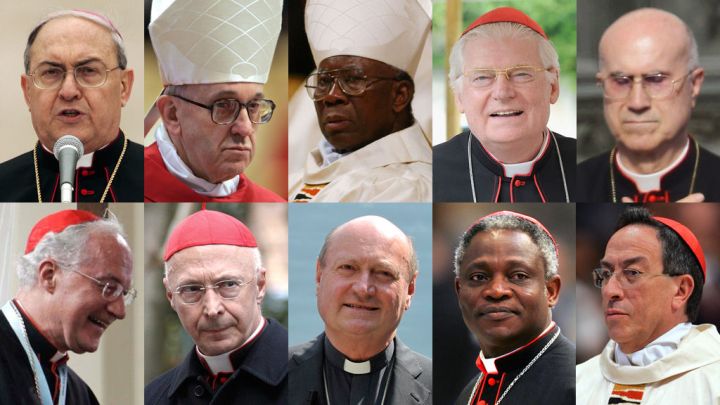 Cardinals around the world have already begun informal consultations by phone and e-mail to construct a profile of the man they think would be best suited to lead the church in a period of continuing crisis.
Cardinals around the world have already begun informal consultations by phone and e-mail to construct a profile of the man they think would be best suited to lead the church in a period of continuing crisis.
Bookmakers in Europe already have their favorites, but the world won’t know who will succeed Pope Benedict XVI until that puff of white smoke is sent up the chimney of the Conclave room between March 15 and March 20.
The College of Cardinals has no shortage of factors to consider in picking the next pope – from age to geography – and no dearth of potential candidates.
The names of some princes of the church have emerged from Vatican watchers since Monday’s surprise abdication announcement.
No fewer than 115 cardinals, below 80, will be eligible to enter a secret Conclave to elect Benedict XVI’s successor.
Below is a list of 13 Cardinals, including Nigeria’s Francis Cardinal Arinze, who have been mentioned prominently as possible candidates to take over from Pope Benedict XVI in March 2013.
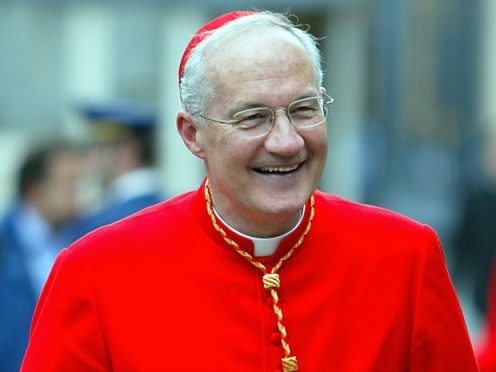 CARDINAL MARC OUELLET, ARCHBISHOP OF QUEBEC
CARDINAL MARC OUELLET, ARCHBISHOP OF QUEBEC
The front runner to take over from Benedict XVI, according to bookmakers, is Cardinal Marc Ouellet. He is the current prefect for the Congregation of Bishops, which oversees the selection of all bishops worldwide and is largely regarded as a power center in the Catholic Church.
Marc Ouellet, PSS (born June 8, 1944 in La Motte, Quebec) is a Canadian Cardinal of the Catholic Church. He is the present prefect of the Congregation for Bishops and concurrently president of the Pontifical Commission for Latin America since his appointment by Pope Benedict XVI on 30 June 2010. Previously, he was archbishop of Quebec and primate of Canada. He was elevated to the cardinalate by Pope John Paul II, on 21 October 2003.
Ouellet spent most of his priestly career as a professor and rector in seminaries. He also received a license in philosophy from the Pontifical University of St. Thomas Aquinas (Angelicum) (1976), and a doctorate in dogmatic theology from the Pontifical Gregorian University (1982).
Ouellet was named titular archbishop of Agropoli and secretary of the Pontifical Council for Promoting Christian Unity on 3 March 2001. Pope John Paul II consecrated him as an archbishop, with Cardinals Angelo Sodano and Giovanni Battista Re as co-consecrators, on 19 March of the same year in St. Peter’s Basilica.
On 15 November 2002 he became archbishop of Quebec and Primate of Canada. Installed on 26 January 2003), he has been one of the most staunch defenders of the Catholic faith in the Canadian hierarchy.
Ouellet is fluent in English, French, Spanish, Portuguese, Italian and German. He is known for his missionary work in South America.
He was created Cardinal-Priest of Santa Maria in Traspontina by John Paul II in the consistory of 21 October 2003.
He was a cardinal elector in the 2005 papal conclave, and numerous observers believed that Ouellet was papabile himself. A report said that Ouellet had supported Cardinal Ratzinger, who became Pope Benedict XVI. Cardinal Ouellet remains eligible to vote future papal conclaves that begin before his 80th birthday on 8 June 2024.
The 2008 International Eucharistic Congress took place in Québec City, coinciding with the 400th anniversary of the foundation of Quebec City. Cardinal Ouellet was elected the recorder, or relator-general, of the 12th Ordinary Assembly of the Synod of Bishops in Rome in early October 2008.
In June 2011 Cardinal Ouellet addressed speculation about his odds in a potential conclave, saying that, for him, being Pope “would be a nightmare”. Ouellet said that while “you can’t keep the world from dreaming things up,” seeing Pope Benedict’s workload at close range makes the prospect of the papacy “not very enviable”. He added: “It is a crushing responsibility. It’s the kind of thing you don’t campaign for.”
He is the present prefect of the Congregation for Bishops and president of the Pontifical Commission for Latin America since his appointment by Pope Benedict XVI on 30 June 2010. He succeeded Giovanni Battista Re, who had reached the age limit.
He is also a member of the Congregation for Divine Worship and the Discipline of the Sacraments, the Congregation for Catholic Education, the Congregation for the Clergy, the Pontifical Council for Culture, the Pontifical Committee for International Eucharistic Congresses and the Congregation for the Doctrine of the Faith. These memberships are for five years and are renewable. Being resident in Rome, he is invited to attend not only the plenary meetings of those departments, which in principle are held every year, but also the ordinary meetings. He takes part in the (generally annual) meetings of these bodies, held in Rome. He is also a member of the Council of Cardinals for the Study of Organizational and Economic Affairs of the Holy See.
On 5 January 2011 he was appointed among the first members of the newly created Pontifical Council for the Promotion of the New Evangelisation. On 29 January 2011, Cardinal Ouellet was appointed by Pope Benedict XVI as a member of Secretariat of State (second section). On 6 April 2011, Cardinal Ouellet was named a member of the Pontifical Council for Legislative Texts by Pope Benedict. On 7 March 2012 he was appointed a member of the Congregation for the Oriental Churches.
A former archbishop of Quebec, Ouellet, 68, speaks six languages. He spent a decade as a missionary in Colombia and has strong ties to Latin and South America. He is considered a conservative and made headlines in 2010 when he said abortion was a “moral crime,” even in cases of rape.
He courted controversy in 2010 when he said abortion was an unjustifiable moral crime, even in the case of rape. He is seen as sharing the same views as the current Pope on a range of issues.
In a 2011 interview, he laughed off the idea of becoming the pontiff, saying the workload and responsibility “would be a nightmare.”
In 2007 he publicly apologised for what he described as past “errors” of the church in Quebec, including the promotion of anti-Semitism and racism, and discrimination against women and homosexuals.
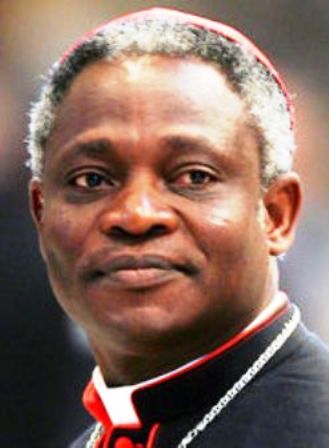 CARDINAL PETER TURKSON (GHANA)
CARDINAL PETER TURKSON (GHANA)
Peter Kodwo Appiah Turkson (born 11 October 1948) is a Ghanaian Cardinal of the Catholic Church. Turkson was born in Wassa Nsuta in Western Ghana to a Methodist mother and a Catholic father.
He is the current president of the Pontifical Council for Justice and Peace since his appointment by Pope Benedict XVI on 24 October 2009. He had previously served as Archbishop of Cape Coast. He was elevated to the cardinalate by Pope John Paul II in 2003, and is widely regarded as papabile.
On 6 October 1992, Turkson was appointed Archbishop of Cape Coast by Pope John Paul II. He received his episcopal consecration on 27 March 1993 from Archbishop Dominic Kodwo Andoh, with Archbishops Peter Poreku Dery and Peter Kwasi Sarpong serving as co-consecrators. He served as President of the Ghana Catholic Bishops’ Conference from 1997 to 2005, and as Chancellor of the Catholic University College of Ghana since 2003.
John Paul II created Turkson Cardinal-Priest of S. Liborio in his last consistory of 21 October 2003. Turkson is the first Ghanaian cardinal and was one of the cardinal electors who participated in the papal conclave of 2005 which elected Pope Benedict XVI. He was described as “one of Africa’s most energetic church leaders” by The Tablet, a Roman Catholic magazine published in London.
On 24 October 2009, Pope Benedict XVI appointed Turkson President of the Pontifical Council for Justice and Peace. Within the Roman Curia, Turkson is also a member of the Congregation for the Evangelization of Peoples, the Congregation for Divine Worship and the Discipline of the Sacraments, the Pontifical Council for Promoting Christian Unity, the Pontifical Commission for the Cultural Heritage of the Church and, since 4 March 2010, the Pontifical Committee for International Eucharistic Congresses. On 12 June 2012 Cardinal Turkson was appointed a member of the Congregation for Catholic Education.
On 16 October 2010 Pope Benedict appointed him as a member of the Congregation for the Doctrine of the Faith.
On 30 March 2011, Pope Benedict XVI announced at his weekly general audience that he was sending Cardinal Turkson as a Vatican mediator to contribute to a possible diplomatic, non-military solution to the potentially explosive civil conflict in Ivory Coast, which could turn into an even bloodier civil war if not contained. There Laurent Gbagbo had refused, in spite of international condemnation and local protests and resistance, to step aside and hand over power to Alassane Ouattara, the certified winner of the presidential election. Atrocities have been committed by both sides.
Cardinal Peter Kodwo Appiah Turkson of Ghana is a Vatican insider but his appointment as pope would nonetheless break new ground for he is both African and black.
Three previous popes came from Africa – Victor I (189 to 199), Miltiades (310/311 to 314) and Gelasius I (492 to 496) – but each is assumed to have been Caucasian, although some sources, notably the Liber Pontficalis, the oldest record of popes in the early church, state that Miltiades was a native of Africa, suggesting he could have been black.
Cardinal Turkson, who is aged 64, is president of the Pontifical Council for Justice and Peace, a position given to him by Benedict in 2009. Before that, he was archbishop of Ghana’s Cape Coast ecclesiastical province.
Within the curia, he is also a member of the Congregation for the Evangelisation of Peoples, the Congregation for Divine Worship and the Discipline of the Sacraments, the Pontifical Council for Promoting Christian Unity, the Pontifical Commission for the Cultural Heritage of the Church, the Pontifical Committee for International Eucharistic Congresses and the Congregation for the Doctrine of the Faith, the department formerly headed by Benedict.
In 1995, he was described as “one of Africa’s most energetic church leaders” by the Tablet, a leading Catholic magazine in Britain.
Cardinal Turkson has tackled issues as diverse as difficulties in communicating the Vatican’s message to North America, global financial and social justice, and contraception.
Asked in 2009 about the possibility of a black pope, he responded: “Why not? If God would wish to see a black man also as Pope, thanks be to God”.
He has taken a more liberal view than some regarding contraception – whilst he has reaffirmed Catholic teaching that condoms are not a solution to Africa’s Aids crisis, he has not ruled out the use of contraception in certain circumstances, such as a married couple where one partner is infected.
The first Ghanaian cardinal, Cardinal Peter Turkson is President of the Pontifical Council for Justice and Peace and the Vatican’s pointman on Catholicism in Africa. An energetic 64-year-old, Turkson is considered to be more moderate than some other contenders but hardly a radical. Asked about the spread of AIDS in Africa, he said abstinence was a better solution than condoms. A couple of years ago, he said the first black pope would have a “rough time” and he was not bucking for the job.
In October 2012 Turkson created some controversy when he showed a YouTube video called “Muslim Demographics”, which critics labelled as alarmistic at an international conference for bishops.
An accomplished polyglot, Turkson is able to speak English, Fante, French, Italian, German, and Hebrew, in addition to understanding Latin and Greek.
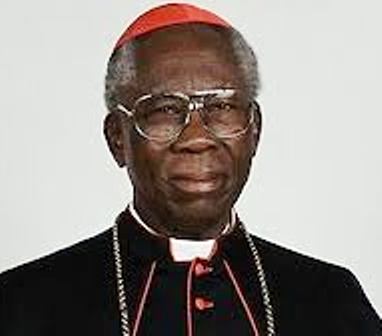 CARDINAL FRANCIS ARINZE (NIGERIA)
CARDINAL FRANCIS ARINZE (NIGERIA)
Francis Arinze (born 1 November 1932) is an Igbo Nigerian Cardinal of the Roman Catholic Church. He is Prefect Emeritus of the Congregation for Divine Worship and the Discipline of the Sacraments, having served as prefect from 2002 to 2008. He is the current Cardinal Bishop of Velletri-Segni (succeeding Joseph Ratzinger, who became Pope Benedict XVI) since 2005. Arinze was one of the principal advisors to Pope John Paul II, and was considered papabile before the 2005 papal conclave, which elected Benedict XVI.
Arinze was professor of liturgy, logic, and basic philosophy at Bigard Memorial Seminary. From there, he was appointed regional secretary for Catholic education for the eastern part of Nigeria. Eventually, Arinze was transferred to London, where he attended the Institute of Education and graduated in 1964.
As bishop Francis Arinze became the youngest Roman Catholic bishop in the world when he was ordained to the episcopate on 29 August 1965, at the age of 32. He was appointed titular bishop of Fissiana, and named coadjutor to the Archbishop of Onitsha, Nigeria. He attended the final session of the Second Vatican Council in that same year along with the 45 year old Archbishop of Krakow, Karol Wojtyla, the future Pope John Paul II. Following the death of the Archbishop of Onitsha in February 1967, Arinze was appointed to the position a few months later, on 26 June 1967. He was the first native African to head his diocese, succeeding Archbishop Charles Heerey, an Irish missionary.
The new Archbishop did not have much time to settle into his office before the Nigeria-Biafra War broke out. The entire archdiocese was located in the secessionist Biafran territory. As a result of the war, Archbishop Arinze had to flee his see city of Onitsha and to live as a refugee, first in Adazi and then Amichi, for the three years of the war, which lasted from 1967 to 1970.
Despite his own refugee status, Archbishop Arinze worked tirelessly for refugees, displaced persons, the sick and the hungry, offering support to priests and religious, and giving the faithful hope for the future. With the help of foreign missionaries, he supervised what one international relief worker called one of “the most effective and efficient distributions of relief materials” in history. He also took care to keep the Church separate from the ongoing political conflict, gaining the respect of all factions in the country.
On 8 April 1985, Arinze resigned from his post in Onitsha, and the Pope named him a Cardinal-Deacon of San Giovanni della Pigna, little more than a month later in the consistory held on 25 May 1985; he was raised to the rank of cardinal-priest in 1996. Two days following his elevation to cardinal deacon, Arinze was appointed President of the Pontifical Council for Interreligious Dialogue.
In this position, Arinze’s visibility to the world public increased. He served in various related capacities including the president of the Special Assembly for Africa of the Synod of Bishops. He also received honours in this capacity: On 24 October 1999 he received a gold medallion from the International Council of Christians and Jews for his outstanding achievements in inter-faith relations. He traveled extensively and became a popular speaker in the United States.
When Pope John Paul II died on 2 April 2005, all major Vatican officials – including Arinze – automatically lost their positions. Arinze was one of the cardinal electors who participated in the 2005 papal conclave that elected Pope Benedict XVI.
He returned to his post as prefect of the Congregation for Divine Worship when confirmed by Benedict on 21 April 2005. Four days later, on 25 April 2005, he was advanced to Cardinal Bishop of Velletri-Segni, which had been vacated by the ascension of Cardinal Ratzinger to the papacy.
On 9 December 2008 Benedict accepted the resignation of Arinze as prefect of the Congregation of Divine Worship. His successor, who took office that same day, is Cardinal Antonio Cañizares Llovera. On 1 November 2012 Cardinal Arinze lost his eligibly to participate and vote in any future conclaves occurring as the result of any period of sede vacante.
On Monday, as the western part of the world was waking up, the news that Pope Benedict XVI was resigning from the papacy, sent shock waves around the world, but it also started the most intense speculation as to who would succeed him. It was the same type of speculation that took place in 2005 when the then Cardinal Joseph Aloisius Ratzinger was elected Pope, but then the speculation was on whether a black man would be elected a Pope. And the greatest speculation at that time was whether Francis Cardinal Arinze from Nigeria would be elected. It was wishful thinking then because no non-Italian had been elected Pope since 1523, until the election of Pope John Paul II, who seemed to have opened the door for a second non-Italian Pope Benedict XVI to be elected. (Photo: Francis Cardinal Arinze).
According to Rory Carroll writing in the Guardian, U.K. of 3rd October, 2003, “Despite the taboo within the Vatican about discussing papal succession, some cardinals have begun to say openly that the next heir to St Peter should be an African. If so, there is only one candidate…For many, the most compelling detail would be his race: a black man with more international influence than many white prime ministers and presidents. As pope he would wield a unique blend of spiritual and political power, able to mobilise the opinions of up to a billion Catholics and sway the policies of nation states.” This opinion was written in 2003, that is before a black man, Barack Obama became the President of the United States of America, the most powerful country in the world. But the Pope is the leader of more than 1.2 billion people, while Obama is the President of 315 million people.
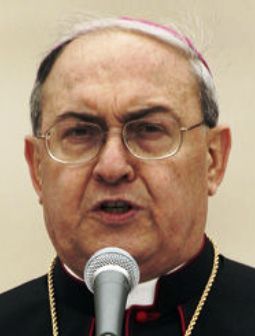 CARDINAL LEONARDO SANDRI (ARGENTINA)
CARDINAL LEONARDO SANDRI (ARGENTINA)
Cardinal Leonardo Sandri was born in Argentina to Italian parents. The head of the Vatican department for Eastern churches, Sadri’s Argentine-born son of Italian immigrants ancestry has provided a potential compromise for those who want to see an Italian at the head of the church, whilst at the same time resulting in the first Pope from the southern hemisphere.
Sandri was the second-in-command in the Vatican Secretary of State’s Office under Pope John Paul II and now serves as Prefect of the Congregation for the Oriental Churches and in this regard, Sandri is seen as a very successful administrator, having also served as the chief of staff in the Vatican.
However, this could count against him as someone who is seen as better at keeping things running, rather than being the inspirational figure required of the Pope.
A longtime Vatican diplomat, Sandri, 69, is well-respected but seen by some as more of a top-notch administrator than a theological leader.
Cardinal Leonardo Sandri is the man who announced the death of Pope John Paul II. During John Paul’s declining health, Cardinal Sandri was chosen to read the texts that the pope could not personally deliver.
On April 2nd, 2005, it was he who appeared in St Peter’s Square to say: “Our Holy Father John Paul has returned to the house of the Father . . . We all feel like orphans this evening.”
Today, Cardinal Sandri (69), of Argentina, is prefect of the Vatican’s Congregation for the Oriental Churches. Before this post, he was part of the Vatican’s diplomatic corps, serving as apostolic nuncio to Venezuela (1997-2000), to Mexico (2000) and substitute for general affairs (2000-2007). He was appointed a cardinal in 2007.
Despite his South American background, Cardinal Sandri has Italian roots – a fact that might help him in a tight contest.
His parents, Antonio Enrico Sandri and Nella Righi, emigrated to Argentina from Ala, a village in Trentino in Italy.
The young Sandri studied humanities, philosophy and theology at the Metropolitan Seminary of Buenos Aires, and was ordained in 1967.
Further studies in Rome, at the Pontifical Gregorian University, earned him a doctorate in canon law. There followed a diplomatic career in eastern Africa and the Indian Ocean French dependency islands of Comoros and Réunion.
He then served in the Vatican, holding various positions until, in June 2007, he was appointed to his current position.
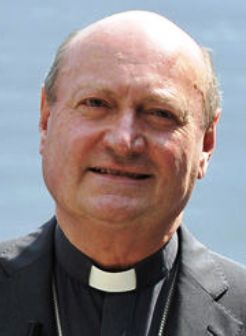 CARDINAL GIANFRANCO RAVASI (ITALY)
CARDINAL GIANFRANCO RAVASI (ITALY)
Gianfranco Ravasi (born 18 October 1942) is an Italian prelate, a cardinal of the Catholic Church. He currently serves in the Roman Curia as President of the Pontifical Council for Culture. On 20 November 2010 Ravasi was created cardinal by Pope Benedict XVI.
Ravasi decided to join the priesthood instead of teaching Greek and Latin classics, as had been his original desire. He attended the seminary of Milan, and was ordained by Cardinal Giovanni Colombo on 28 June 1966. He then furthered his studies in Rome at the Pontifical Gregorian University and the Pontifical Biblical Institute. He spent summers in Syria, Jordan, Iraq, and Turkey, working as an archaeologist with such figures as Kathleen Kenyon and Roland de Vaux.
He later served as a professor of exegesis of the Old Testament at the Theological Faculty of Northern Italy in Milan. From 1989 to 2007, he was prefect of the Ambrosian Library. He also collaborated with Cardinal Carlo Maria Martini, S.J., but was sometimes seen as more conservative than the Cardinal on matters of faith and morals.
In 2005, according to Sandro Magister, Ravasi was a leading candidate to become Bishop of Assisi but the Congregation for Bishops withdrew his candidacy after Ravasi wrote an article about Easter in the newspaper Il Sole 24 Ore, in which his statement, “He was not raised; he arose,” was seen as potentially heterodox.[4] Yet in 2007, at the invitation of Pope Benedict XVI, he composed the Good Friday meditations for the public procession of Stations of the Cross led by the Pope at the Colosseum.
On 3 September 2007, Ravasi was appointed President of the Pontifical Council for Culture and Titular Archbishop of Villamagna in Proconsulari. He was also named President of the Pontifical Commission for the Cultural Heritage of the Church and of the Pontifical Commission for Sacred Archeology. He received his episcopal consecration as an archbishop on the following 29 September from Benedict XVI himself, with Cardinals Tarcisio Bertone, S.D.B., and Marian Jaworski serving as co-consecrators, at St. Peter’s Basilica. On 20 November 2010, he was created and proclaimed Cardinal-Deacon of San Giorgio in Velabro.
On 11 December 2010, Ravasi was named a member of the Congregation for Catholic Education for a five-year renewable term.[6] On 29 December 2010, he was appointed the first member of the new Pontifical Council for the Promotion of the New Evangelisation and also a member of the Pontifical Council for Interreligous Dialogue.
In February 2011 Cardinal Ravasi said that the dialogue between believers and nonbelievers should not limit itself to finding a least common denominator of agreement, but rather should seek to confront the fundamental questions of life. Cardinal Ravasi spoke of the need for more profound dialogue with nonbelievers which took place in an interview, which took place ahead of the presentation at the University of Bologna of the “Court of the Gentiles.” The new Vatican structure – overseen by the culture council – was created to foster dialogue between believers and nonbelievers. The idea for this initiative was proposed in a 21 December 2009, address by Pope Benedict to the Roman Curia, in which he spoke about the “Court of the Gentiles,” a space in the ancient Temple of Jerusalem that was not reserved for the Jews, but rather was open to any person independent of his culture or religion. Cardinal Ravasi, “wanted to reintroduce the ancient tradition of the ‘disputed questions’ – as they were called then – while at that time they had to do with different opinions and theses, in this case they will be between believers and nonbelievers.” He added “I am trying to see to it that this danger is avoided,”. He stated that “I want really fundamental questions to be asked – questions of anthropology, then good and evil, life and afterlife, love suffering, the meaning of evil – questions that are substantially at the basis of human existence.”
The Italian-born President of the Pontifical Council for Culture, Cardinal Gianfranco Ravasi, 70, is hugely popular through his Scripture lessons on television and radio. On a crusade to keep the church relevant, he blogs, quotes Amy Winehouse on Twitter, and criticises priests for boring sermons. An archaeologist by training, he’s a brainy biblical scholar who is seen as a theological moderate.
The Vatican’s culture minister since 2007. He prepared for a recent Vatican conference on youth culture by listening to Amy Winehouse. He is also a keen user of Twitter, and has 34,285 followers. He has said that preaching in church had become formulaic and risks becoming “irrelevant”.
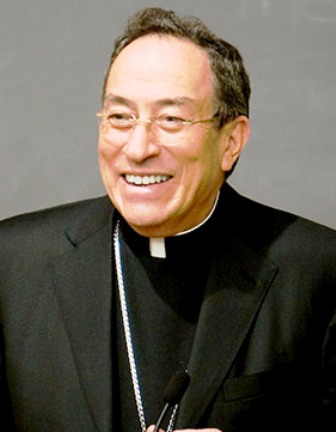 CARDINAL OSCAR RODRIGUEZ MARADIAGA (HONDURAS)
CARDINAL OSCAR RODRIGUEZ MARADIAGA (HONDURAS)
Óscar Andrés Rodríguez Maradiaga, SDB (born December 29, 1942) is a Honduran Cardinal of the Catholic Church. He is the current Archbishop of Tegucigalpa, President of Caritas Internationalis and was President of the Latin American Episcopal Conference (CELAM) from 1995 to 1999. Rodríguez was elevated to the cardinalate in 2001. He was the Vatican’s spokesperson with the International Monetary Fund and the World Bank, on the issue of Third World debt.
On October 28, 1978, Rodríguez was named auxiliary bishop of Tegucigalpa and titular bishop of Pudentiana. He received episcopal consecration on the following December 8 from Archbishop Gabriel Montalvo, with Archbishops Héctor Santos Hernández and Miguel Obando serving as co-consecrators. Rodríguez was named Archbishop of Tegucigalpa on January 8, 1993.
Archbishop Rodríguez was created Cardinal-Priest of Santa Maria della Speranza by Pope John Paul II in the consistory of 21 February 2001. He is the first cardinal from Honduras.
In addition to his episcopal responsibilities, he is currently the President of the Episcopal Conference of Honduras. Rodríguez was one of the cardinal electors who participated in the 2005 papal conclave that selected Pope Benedict XVI.
He was considered by some to be a possible successor to Pope John Paul II, but he reportedly got only two votes in the first ballot.
Cardinal Rodríguez was elected on 5 June 2007 as the new Caritas Internationalis President by the Caritas Confederation members at their 18th General Assembly in Vatican City. He was reelected 24 May 2011. As its President, he is the global representative of the Caritas Confederation for the next four years.
Since December 2001 he has received a pension of 100,000 lempiras a month from the budget of the President of Honduras specified in Acuerdo Ejecutivo 046-2001 published December 7, 2002 in La Gaceta.
On 12 June 2012 Cardinal Rodriguez Maradiaga was appointed a member of the Congregation for Catholic Education for a five year renewable term.[5] The Honduran cardinal has been the Vatican’s spokesperson with the International Monetary Fund and the World Bank on the issue of developing nations’ debts.
He shares many views with Benedict XVI, on issues such as the use of contraception to prevent Aids, and abortion. He has said that a politician who publicly supports abortion excommunicates himself and that there is no benefit in the fight against Aids in using contraceptives.
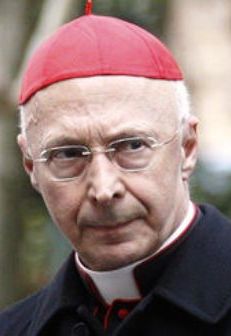 CARDINAL ANGELO BAGNASCO (ITALY)
CARDINAL ANGELO BAGNASCO (ITALY)
Angelo Bagnasco (Italian pronunciation: [ˈandʒelo baɲˈɲasko]; born 14 January 1943) is an Italian Cardinal of the Catholic Church. He currently serves as Archbishop of Genoa and President of the Italian Episcopal Conference (CEI), and was elevated to the cardinalate in 2007.
Bagnasco was appointed Bishop of Pesaro on 3 January 1998. He received his episcopal consecration on the following February 7 from Archbishop Dionigi Tettamanzi, with Bishops Gaetano Michetti and Giacomo Barabino serving as co-consecrators. Bagnasco became Metropolitan Archbishop of the same on 11 March 2000.
Since 2001, he has held several posts within the Italian Episcopal Conference (CEI), including president of the administrative board of its newspaper Avvenire, and secretary for schools and universities. On 20 June 2003, he was appointed Archbishop of the Military Ordinariate of Italy. He described his appointment as “totally unexpected” and that he accepted it “with surprise and some trepidation. First of all because the military world was totally unknown to me, and then because it was a matter of an extensive diocese, covering the whole country and even beyond, with our soldiers on missions to foreign countries”.
Following the resignation of Tarcisio Bertone, Bagnasco was appointed Archbishop of Genoa on 29 August 2006. He was installed on the following 24 September. He defended Pope Benedict XVI in the Regensburg controversy.
On 7 March 2007, Benedict XVI selected Bagnasco to succeed Camillo Ruini as President of the Italian Episcopal Conference for a five-year term. “The choice is a compromise between two of Benedict’s two most influential policy-movers—Bagnasco is a confirmed Ruini-ite, ‘but Bertone likes him,’ as one op put it.”
On 27 June 2007, Archbishop Bagnasco, along with several other prelates, attended a briefing at the Apostolic Palace on Pope Benedict’s impending motu proprio allowing wider celebration of the Tridentine Mass.[6] Two days after this meeting, on June 29, he and forty-five others were invested with the pallium, a woolen vestment reserved for metropolitan bishops, by Benedict in St. Peter’s Basilica.
On 17 October 2007 it was announced by Pope Benedict that Bagnasco along with 22 other prelates would be created cardinal in a consistory on the 24 November. He was created and proclaimed Cardinal-Priest of Gran Madre di Dio. On June 12, 2008 in addition to his duties as archbishop of Genoa he was appointed by Benedict as a member of congregations in the Roman Curia. These are: the Congregation for the Oriental Churches, the Congregation for Divine Worship and the Discipline of the Sacraments and the Congregation for Bishops.
As he now holds the rank of cardinal, Bagnasco is eligible to participate in any future papal conclaves that begin before his 80th birthday on January 14, 2023. He is considered to be conservative in his views, and a theological ally of his predecessor in the CEI, Cardinal Camillo Ruini. In August 2012, he gave a homily at the Cathedral of Genoa putting forth the Martyr and Deacon Saint Lawrence as a model of heroic witness to one’s faith life for the Archdiocese. Cardinal Angelo Bagnasco is the president of the Italian Episcopal Conference and the Archbishop of Genoa. He is well-connected, having served twice as the President of the Italian Bishop’s Conference. A baker’s son who says he knew he wanted to be a priest in elementary school, Bagnasco, 70, is considered a conservative force in the church.
In 2007 Bagnasco angered gay-rights campaigners by condemning same-sex marriage – comparing it with incest and paedophilia. He has also expressed strong opposition to abortion. He was the target of death threats after the 2007 comments opposing same-sex unions and in 2011, he launched a thinly veiled attack on scandal-ridden Italian Prime Minister Silvio Berlusconi and other politicians, referring to them as “sad and hollow.”
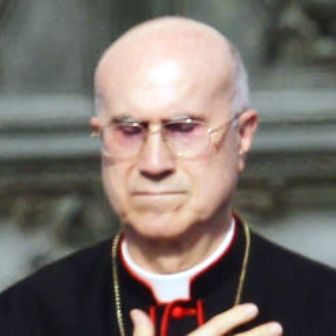 CARDINAL TARCISIO BERTONE (ITALY)
CARDINAL TARCISIO BERTONE (ITALY)
Tarcisio Pietro Evasio Bertone, S.D.B. (born 2 December 1934) is an Italian prelate and diplomat. A cardinal of the Roman Catholic Church, he currently serves as Cardinal Secretary of State and Camerlengo, having previously served as Archbishop of Vercelli from 1991 to 1995, as Secretary of the Congregation for the Doctrine of the Faith, when Cardinal Ratzinger, the future Pope Benedict XVI, was Prefect, and Archbishop of Genoa from 2002 to 2006. Bertone was elevated to the cardinalate in 2003. On 10 May 2008, he was named Cardinal-Bishop of Frascati. Besides his native Italian, Bertone speaks fluent French, Spanish, German and Portuguese. He has some knowledge of English, although he is not fluent, and he can read Polish (and he has a Polish secretary), Latin, Greek and Hebrew. Close to the Pope in both theology and conservative beliefs, he was plucked from relative obscurity by Benedict XVI to be appointed Cardinal Secretary of State – the Vatican’s prime minister.
He has urged stronger punishment by the church of drug dealers, including excommunication. He was also the target of much of the leaks in the Vatileaks scandal – something he has blamed on journalists.
As recently as April 2010 he has angered the gay community by blaming the child abuse scandal within the church on homosexuality.
On 4 July 1991, Bertone was appointed Archbishop of Vercelli by Pope John Paul II. He was consecrated a bishop one month later by Archbishop Mensa, who had also ordained him. He held this post until his resignation in 1995 upon being named Secretary of the Congregation for the Doctrine of the Faith under Cardinal Ratzinger, who would later become Pope Benedict XVI. Appointed Archbishop of Genoa on 10 December 2002 and installed on 2 February 2003, Bertone was elevated to the College of Cardinals in the consistory of 21 October 2003, as Cardinal-Priest of Santa Maria Ausiliatrice in Via Tuscolana. Then-Archbishop Angelo Amato succeeded Bertone as Secretary of the Congregation for the Doctrine of the Faith, before becoming the Cardinal Prefect of the Congregation for the Causes of Saints.
On 15 March 2005, Bertone was in the news for “breaking the Church’s silence” and sharply criticizing Dan Brown’s 2003 novel The Da Vinci Code, saying the book was “shameful and unfounded lies”, and that believers should boycott the book. Both Bertone and official Vatican spokespeople insisted that Bertone was not speaking as an official representative of the Church, but it was also noted that Bertone’s high placement within the Church hierarchy (his name was often cited as a potential candidate for the next pontiff) gave his words considerable weight, such that his comments were often reported by various media as an official statement from the Vatican.[4] In 2006, the NBC news program Dateline described his statement as “a high-ranking Vatican Cardinal called for a boycott of the film.”
On 22 June 2006, Benedict XVI appointed Cardinal Bertone to replace Angelo Sodano as the Cardinal Secretary of State, assuming the office on 15 September of that same year. on 26 June 2006 Cardinal Bertone was awarded the Knight Grand Cross of the Order of Merit of the Italian Republic.
It was revealed on the following 31 August that Cardinal Bertone had a dream in which Pope John Paul II spoke to him saying “do not be afraid” to the Cardinal as he prepared to take his new job.
On 4 April 2007, Benedict XVI also appointed Cardinal Bertone as Camerlengo of the Holy Roman Church (or Chamberlain). The duties of the Camerlengo are largely confined to administration during the vacancy of the Holy See. On 10 May 2008 he was promoted to the rank of Cardinal-Bishop of Frascati.
Bertone is known to study the problem at hand before taking action. One such example is when after he was named Archbishop of Vercelli he “locked himself in his room all night and studied the life of Saint Eusebius, who was bishop of the city back in 345 AD”.
He is a member of the Congregation for the Doctrine of the Faith, Congregation for the Clergy, Congregation for Divine Worship and the Discipline of Sacraments, Congregation for the Oriental Churches, Congregation for Bishops and Congregation for the Evangelization of Peoples. He will hold these memberships until his 80th birthday on 2 December 2014.
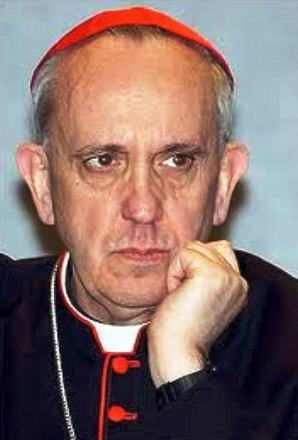 CARDINAL JORGE MARIO BERGOGLIO (ARGENTINA)
CARDINAL JORGE MARIO BERGOGLIO (ARGENTINA)
The Archbishop of Buenos Aires has for a long time preached a message of compassion towards the poor.
He has also taught the importance of respecting people who are gay, but has strongly opposed same-sex marriage in Argentina, and has said that gay adoption is a form of discrimination against children.
Generally a rarity for a Jesuit in non-missionary countries, Bergoglio became Auxiliary Bishop of Buenos Aires and was appointed to the titular see of historical Auca. He was consecrated to the episcopacy on June 27, 1992. When it was becoming clear that Antonio Quarracino would soon end his term in office, Bergoglio was appointed Coadjutor Archbishop of Buenos Aires on February 28, 1998. He effectively took over the duties of the ailing Cardinal Quarracino.
As cardinal, Bergoglio was appointed to several administrative positions in the Roman Curia. He served on the Congregation of Clergy, Congregation of Divine Worship and Sacraments, Congregation of Institutes of Consecrated Life and the Congregation of Societies of Apostolic Life. Bergoglio became a member of the Commission on Latin American and the Family Council.
As Cardinal, Bergoglio has become known for personal humility, doctrinal conservatism and a commitment to social justice. A simple lifestyle has contributed to his reputation for humility. He lives in a small apartment, rather than in the palatial bishop’s residence. He gave up his chauffeured limousine in favor of public transportation, and he reportedly cooks his own meals.
Upon the death of Pope John Paul II, Bergoglio was summoned to Vatican City to participate in the 2005 papal conclave as a cardinal elector. Although Bergoglio was considered papabile himself, the conclave selected Pope Benedict XVI. Earlier, he had participated in the funeral of Pope John Paul II and acted as a regent alongside the College of Cardinals, governing the Holy See and the Roman Catholic Church during the interregnum sede vacante period. Cardinal Bergoglio remains eligible to participate in any future conclaves that begin before his 80th birthday on December 17, 2016.
During the 2005 Synod of Bishops, he was elected member of the Post-Synodal council. Catholic journalist John L. Allen, Jr. reported that Bergoglio had been a frontrunner in the 2005 Conclave. An unauthorized diary of uncertain authenticity released in September 2005 (1) further affirmed that Bergogolio was the runner-up and main challenger of Cardinal Ratzinger during the conclave. The purported diary of the anonymous cardinal claimed Bergoglio received 40 votes during the third ballot, but fell back to 26 at the fourth and decisive ballot.
On November 8, 2005, Bergoglio was elected President of the Argentine Episcopal Conference for a three-year term (2005–2008) by a large majority of the Argentine bishops, which according to reports confirms his local leadership and the international prestige earned by his alleged performance in the conclave. Reelected on November 11, 2008.
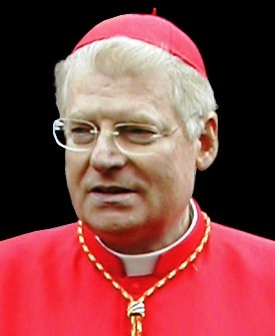 ARCHBISHOP ANGELO SCOLA (VENICE)
ARCHBISHOP ANGELO SCOLA (VENICE)
Angelo Scola (Italian pronunciation: [ˌandʒelo ˈskɔːla]) (born 7 November 1941) is an Italian Cardinal of the Catholic Church, philosopher and theologian. He was appointed Archbishop of Milan by Pope Benedict XVI on 28 June 2011.[1] He had previously served as Patriarch of Venice since 2002. He was elevated to the cardinalate in 2003. He is currently considered a contender to succeed Pope Benedict XVI, who has announced his resignation effective 28 February 2013.[2] Cardinal Angelo Scola is the archbishop of Milan, a good launching pad for popes and the the former Patriarch of Venice, which has also produced many a papal front-runner. Scola, 71, has close ties to the conservative Communion and Liberation movement.
The son of a lorry driver is today the Archbishop of Milan, and a widely respected intellectual within right-wing political circles. He is the author of a wide range of theological works.
Scola was named Bishop of Grosseto on 18 July 1991, and was consecrated by Cardinal Bernardin Gantin (with Bishops Abele Conigli and Adelmo Tacconi serving as co-consecrators) on the following 21 September. As Bishop of Grosseto he promoted a renewal of catechesis in the diocese. Scola chose as his episcopal motto Sufficit gratia tua (“Your grace suffices”, 2 Corinthians 12:9).
Among Scola’s chief pastoral concerns in Grosseto were the education of children and youths, vocations and clergy formation (he reopened the diocesan seminary), new approaches to parish life, the pastoral care of labourers (particularly during the difficult period of the dismantling of mines in Grosseto), culture and the family, and the opening of a diocesan mission in Santa Cruz, Bolivia. During this period he wrote and published a book aimed at young people on the subject of the educative mission of the Church. In his pastoral capacity as bishop, Scola paid particular attention to the issues of education, youth, clergy formation, renewal of parish life, pastoral care of workers, culture and the family.
Scola in 1995 resigned as bishop of Grosseto to serve as rector of the Pontifical Lateran University in Rome and President of the Pontifical John Paul II Institute for Studies on Marriage and Family in Rome, with a term spent as visiting professor at the counterpart Institute in Washington, D.C., during which time he wrote a monograph on the theology of von Balthasar.
In 1995 he became a member of the Congregation for the Clergy. He also served as member of the Episcopal Commission for Catholic Education of the Italian Bishops’ Conference and, from 1996, as president of the Committee for Institutes of Religious Studies which addresses questions of the theological formation of the laity in Italy.
From 1996 to 2001 Scola was a member of the Pontifical Council for Health Workers and wrote several texts on issues around health care. In 1996 he was named a member to the Pontifical Council for the Family.
On 17 January 2009 he was appointed a member of the Pontifical Council for Culture by Pope Benedict.[5] On 5 January 2011 he was appointed among the first members of the newly created Pontifical Council for the Promotion of the New Evangelisation. He is also a member of the Congregation for Divine Worship.
Scola was appointed Patriarch of Venice on 5 January 2002, elected President of the Bishops’ Conference of the Triveneta region on 9 April 2002 and created Cardinal-Priest of Santi XII Apostoli on 21 October 2003. As patriarch Scola developed a reputation of openness and pastoral concern. In Venice, for instance, he set aside Wednesday mornings to meet anyone who wanted to see him, whether or not they had an appointment.
After the death of Pope John Paul II in 2005, Scola was considered to be among the papabili in the 2005 papal conclave. Srđa Trifković supported him vigorously in Chronicles because he saw him as the only man who might reverse what Vatican insiders see as the decay of European culture. The conclave elected Joseph Ratzinger as Pope Benedict XVI.
On 28 June 2011 he was appointed to replace Cardinal Dionigi Tettamanzi as Archbishop of Milan, and he left the office of Patriarch of Venice. On 9 September 2011 he took possession of the Archdiocese of Milan by proxy, becoming the Archbishop of Milan to all intents and purposes.[8] Cardinal Scola received from Pope Benedict XVI the pallium of Metropolitan Archbishop of Milan on 21 September 2011 at Castel Gandolfo. The new Archbishop entered the city of Milan on 25 September 2011 and on that date he was enthroned in his Cathedral with a solemn mass for the beginning of his pastoral ministry in the See of Milan.
Cardinal Scola during a Liturgy in Cassano Magnago, 2012.
On Monday, 24 October 2011, Pope Benedict XVI named Cardinal Scola to be a member of the Council of Cardinals for the Study of the Organizational and Economic Problems of the Holy See.[10] On 7 March 2012 he was appointed a member of the Congregation for the Oriental Churches.
On the 21 April he was appointed a member of the Congregation for the Doctrine of the Faith. He has aired views that the church should relax its rules on bio-ethical issues such as stem-cell research. He is a champion of immigrants’ right and has been active in outreach to the Muslim world. Vatican expert John Allen wrote of Scola: “If you like Benedict XVI, you’ll love Scola; even if you don’t, you’ll find it hard not to be charmed.”
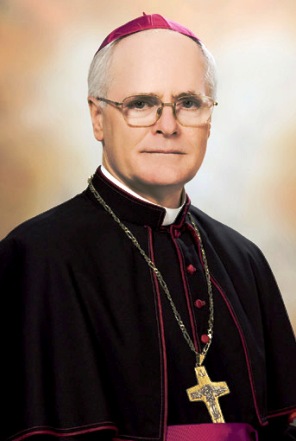 ODILO SCHERER (SAU PAULO, BRAZIL)
ODILO SCHERER (SAU PAULO, BRAZIL)
When Pope Benedict visited Brazil in 2007, the local man at his side was Odilo Scherer, whom he had just made archbishop of São Paulo, once the biggest Catholic archdiocese in the world.
The descendant of immigrants from the German Saarland who settled in the south of Brazil, this discreet prelate, who stands out as a conservative in what is Brazil’s traditionally liberal Catholic Church, clearly impressed the pope. Shortly after his return to Rome he handed Archbishop Scherer a cardinal’s hat.
As the leading cardinal in the world’s most populous Catholic nation, he is frequently tipped to become the first non-European pope. His predecessor, Cláudio Hummes, was reportedly one of the candidates defeated by Benedict in 2005.
As a conservative, Cardinal Scherer’s elevation to the archbishopric signalled the end of years of struggle by the Vatican to rein in a powerful centre of the Latin church which it considered too liberal.
In 1989 Pope John Paul II stripped the archdiocese of much of its outlying regions and today Cardinal Scherer oversees a shrunken territory whose role in Brazil’s national life is much reduced. After almost six years in his job, he remains little known in his city.
Firmly in line with Rome’s position on abortion Cardinal Scherer (63) has opposed the limited attempts to liberalise Brazil’s ban on the procedure.
Despite his attacks on liberation theology, the doctrine once prevalent in the Brazilian church and which the Vatican suspected was polluted by Marxism, Cardinal Scherer is an advocate of greater social justice for Brazil’s poor. Cardinal Odilo Scherer. Born in Brazil to parents of German extraction, Scherer’s big advantage is geography; he hails from the region that is home to half of the world’s Catholics. Considered a moderate, the 63-year-old serves as the archbishop of Sao Paulo and has spots in two key Vatican groups, the Congregation for the Clergy and the Pontifical Council for the Promotion of the New Evangelisation.
Timothy Dolan, the 62-year-old Cardinal Archbishop of New York, emerged has among those tipped to be in the running to succeed Pope Benedict.
Timothy Michael Dolan (born February 6, 1950) is an American Cardinal of the Roman Catholic Church. Appointed by Pope Benedict XVI, Dolan is the tenth and current Archbishop of New York. Dolan also currently serves as the President of the United States Conference of Catholic Bishops and was granted the titular position as Archpriest of Nostra Signora di Guadalupe a Monte Mario (English: Our Lady of Guadalupe of Mount Mario) in Rome.
Dolan is widely known for his conservative values and charismatic media personality. He previously served as Archbishop of Milwaukee from 2002 to 2009, preceded by service as an Auxiliary Bishop of St. Louis from 2001 to 2002. Time Magazine named Dolan one of the “100 Most Influential People in the World” for 2012.
Cardinal Dolan has been named in the press as a likely papabile (a possible or likely successor) for election to the Papacy after Pope Benedict XVI announced his resignation due to ill health, effective February 28, 2013. A native of St Louis, Missouri, Cardinal Dolan has Irish connections – links beyond his surname. As Archbishop of New York, he was a member of the apostolic visitation to Ireland announced by Benedict in March 2010 in response to the Ryan and Murphy reports on clerical sexual abuse of children in 2009.
On June 19, 2001, Dolan was appointed Auxiliary Bishop of St. Louis and Titular Bishop of Natchesium by Pope John Paul II. He received his episcopal consecration on the following August 15 from Archbishop Justin Rigali, with Bishops Joseph Naumann and Michael Sheridan serving as co-consecrators. He chose as his episcopal motto: Ad Quem Ibimus, meaning, “Lord, To Whom Shall We Go?” (John 6:68) taken from St. John’s Gospel. 6:68.
On June 25, 2002, Dolan was named the tenth Archbishop of Milwaukee, Wisconsin. He was formally installed at the Cathedral of St. John the Evangelist on August 28, 2002. Dolan said he was challenged and haunted by the sexual abuse scandal in that diocese, which broke during his tenure There were over 8,000 reports of abuse by in excess of 100 staff.
On February 23, 2009, Dolan was appointed the tenth Archbishop of New York by Pope Benedict XVI. The Roman Catholic Archdiocese of New York, the nation’s second-largest after the Roman Catholic Archdiocese of Los Angeles, serves over 2.5 million Roman Catholics. He succeeded Cardinal Edward Egan, who reached the mandatory retirement age of 75 in 2007. According to Dolan, he was informed of his appointment “nine, ten days” prior to the official announcement.
Dolan was elected on November 16, 2010, to the presidency of the United States Conference of Catholic Bishops, becoming the first New York bishop to attain the post. Dolan replaced Cardinal Francis George, who did not run for re-election. In a vote of 128–111, Dolan beat out nine others, including Bishop Gerald F. Kicanas of Tucson, Arizona, to win the three-year term. Dolan took office two days later.
On January 6, 2012, Pope Benedict XVI announced that Dolan would be created a cardinal at the consistory of the Church held on February 18, 2012. Archbishop Dolan was formally elevated to the cardinalate by Pope Benedict XVI on February 18, 2012, receiving the traditional red biretta and gold ring during a ceremony in Saint Peter’s Basilica. The day prior, he addressed the pope and the College of Cardinals on spreading the faith in a secularized world. He was created Cardinal-Priest of Nostra Signora di Guadalupe a Monte Mario. He was the first archbishop of New York not to receive the titular church of Santi Giovanni e Paolo since 1946, with that title still being held by Cardinal Egan, who is now archbishop emeritus of New York.
In many respects, Cardinal Dolan is a typical American: outgoing, vocal, confident and dynamic – qualities not usually associated with the curia.
But he’s a conservative on the key issues of concern to the church, and not afraid of speaking out. In 2008, he rebuked Democratic vice-presidential candidate then-US senator Joe Biden and Speaker of the House Nancy Pelosi for “misrepresenting timeless church doctrine” on abortion.
A year later, he charged that Barack Obama had “taken a position very much at odds with the church” on abortion, and said the University of Notre Dame had made a “big mistake” in selecting Mr Obama to deliver its graduation ceremony’s speech.
He supports clerical celibacy. “The recent sad scandal of clerical sexual abuse of minors . . . has nothing to do with our celibate commitment,” he wrote in 2003. In an interview with the New York Post in 2009, he reasserted the church’s opposition to gay marriage.Cardinal Timothy Dolan. The head of the archdiocese of New York, Dolan is one of the Vatican’s most popular figures — charismatic, camera-ready and conservative. As head of the United States (U.S.) Conference of Catholic Bishops, he has not shied away from political fights, taking on the Barack Obama administration over contraception. But Dolan, 63, has only been a cardinal for a year.
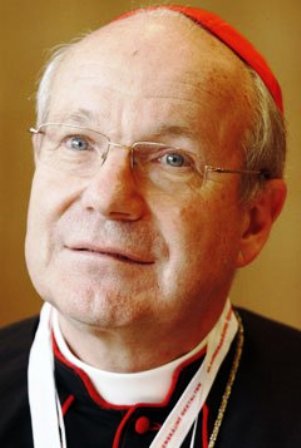 CARDINAL HUGO DAMIAN SCHONBORN (AUSTRIA)
CARDINAL HUGO DAMIAN SCHONBORN (AUSTRIA)
Christoph Maria Michael Hugo Damian Peter Adalbert (Graf von) Schönborn, OP (born 22 January 1945) is a Bohemian-born Austrian cardinal of the Catholic Church and theologian. He currently serves as the Archbishop of Vienna and President of the Austrian Bishops Conference. He was elevated to the cardinalate in 1998. He is also the chaplain of the Order of the Golden Fleece, of which he has been a member since 1961. He is a member of the formerly sovereign princely House of Schönborn. He is seen as a leading candidate for the papacy because he is conservative, albeit a “balanced reformer”.
Schönborn has travelled widely and is well known in the Catholic Church globally for editing the Catechism of the Catholic Church. He is a former student of Pope Benedict XVI and a close confidant of him.
In September 1945, his family was forced to flee from Bohemia. Schönborn took his Matura examination in 1963, and entered the Order of Preachers. He studied theology in Paris; and philosophy and psychology in Bornheim-Walberberg and Vienna. Schönborn also attended the Catholic Institute of Paris for further theological work, before studying Slavic and Byzantine Christianity at the Sorbonne.
He was ordained to the priesthood by Cardinal Franz König on 27 December 1970 in Vienna. Schönborn obtained a Licentiate of Sacred Theology in 1971, and later studied in Regensburg under Fr. Joseph Ratzinger (later Pope Benedict XVI). He subsequently completed a doctorate in Sacred Theology in Paris. From 1975 he was Professor of Dogmatics at the University of Fribourg, Switzerland. In 1980, he became a member of the International Theological Commission of the Holy See, and in 1987 he became editorial secretary for the Catechism of the Catholic Church. In 1991 he was chosen to become an auxiliary bishop of Vienna.
He was appointed Coadjutor Archbishop of Vienna on 11 April 1995 and succeeded as Archbishop of Vienna on 14 September 1995. He was created Cardinal-Priest of Gesù Divin Lavoratore by Pope John Paul II in the consistory of 21 February 1998. Considered among the papabili following John Paul’s death, Cardinal Schönborn was one of the cardinal electors who participated in the 2005 papal conclave that selected Pope Benedict XVI. Cardinal Schönborn remains eligible to vote in any future papal conclaves that begin before his 80th birthday on 22 January 2025.
He serves as a member of the Congregation for the Doctrine of the Faith, that for the Oriental Churches, and that for Catholic Education, and of the Pontifical Council for Culture and the Pontifical Commission for the Cultural Heritage of the Church. On 5 January 2011 he was appointed among the first members of the newly created Pontifical Council for the Promotion of the New Evangelisation.
Cardinal Schörnborn (with crosier) walking in the Otto von Habsburg funeral procession.
Cardinal Schönborn also serves as the chaplain to the Austrian Order of the Golden Fleece. In addition to his native German, he is fluent in English, French, Italian, Spanish and Latin. Schönborn’s episcopal motto is Vos autem dixi amicos (I have called you friends) from John 15:15.

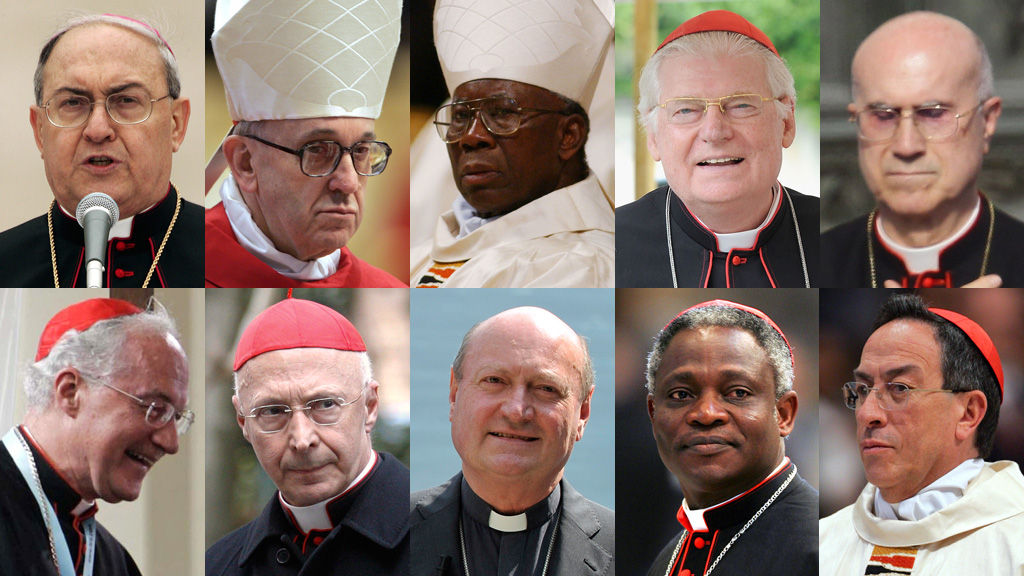

may GOD bless those whom gives their life for his church
LikeLike